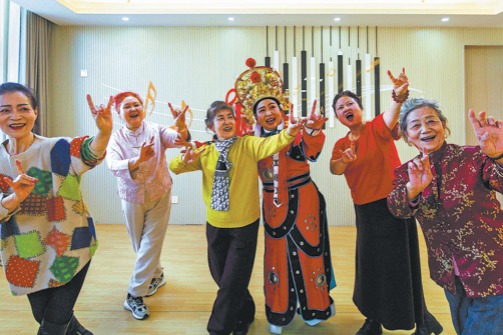Sperm donation system using tech to help infertile families
By Qiu Quanlin in Guangzhou | chinadaily.com.cn | Updated: 2021-06-18 20:09
An online matching system for sperm donation which uses big data and artificial intelligence technologies started trial operation in Guangzhou, the capital of Guangdong province, on Friday, aiming to better meet the needs of infertile families and reduce birth defects.
"Using advanced technologies in reproduction will benefit more families who choose to use sperm donation to have their children," said Huang Weibiao, deputy director of the Family Planning Special Hospital of Guangdong.
Influenced by pressure from work and lives, a growing number of men have developed infertility problems such as reduced sperm quality and quantity, according to Huang.
"The big data and AI technologies will better assist families to have their children using sperm donation," said Huang.
Using the technologies, the system allows matching in basic information such as blood type, facial shape, nose bridge, skin color, hair distribution and eyelid conditions, according to Zhang Xinzong, director of the andrology department of the hospital.
The hospital has the only sperm bank in Guangdong, with more than 80,000 copies of sperm donated.
"It realizes the intelligent comparison of biological features between men of families who are strongly willing to have their children using assistive technologies and sperm donors through the cloud database," Zhang said.
In the past, only blood type was considered in artificial reproduction, according to Zhang.
"Sperm from donors who are closely similar to applicants in biological features will be assigned, to help infertile parents have children that are expected to look similar to them," said Zhang.
The technological system would also help reduce birth defects as the sperm bank has conducted second-generation gene sequencing on sperm donors, according to Zhang.
"From the perspective of genes and genetics, doctors in the reproductive center can help couples applying for sperm assistive reproduction to make a matching selection based on genes to avoid thalassemia," said Zhang.
























